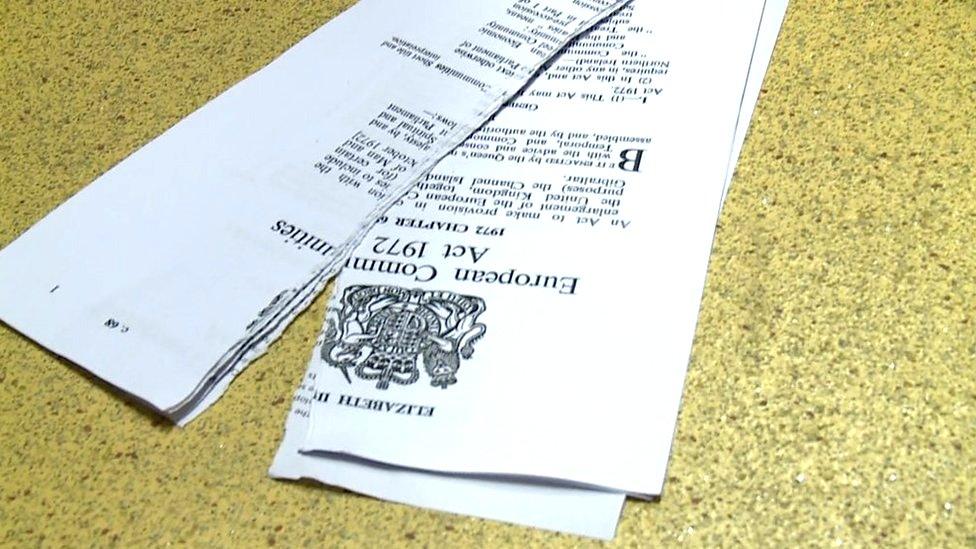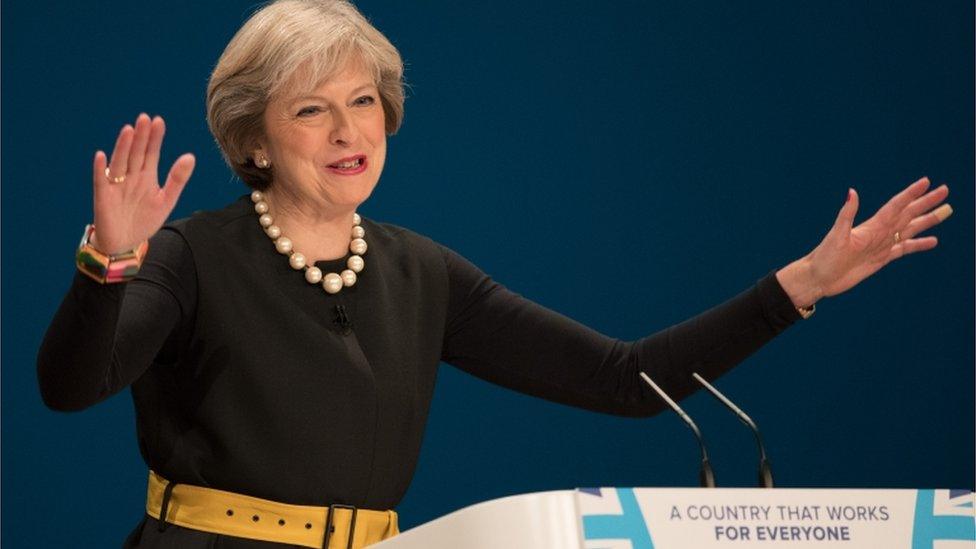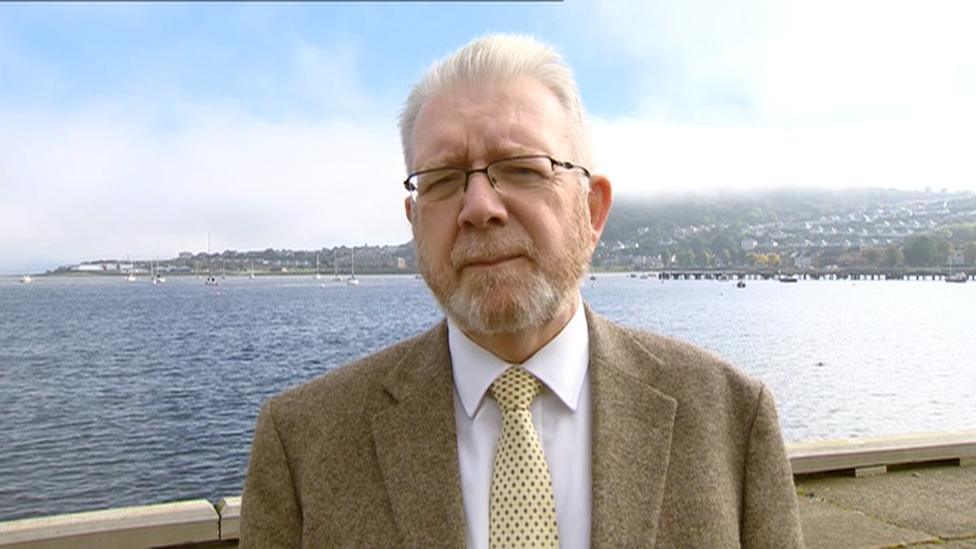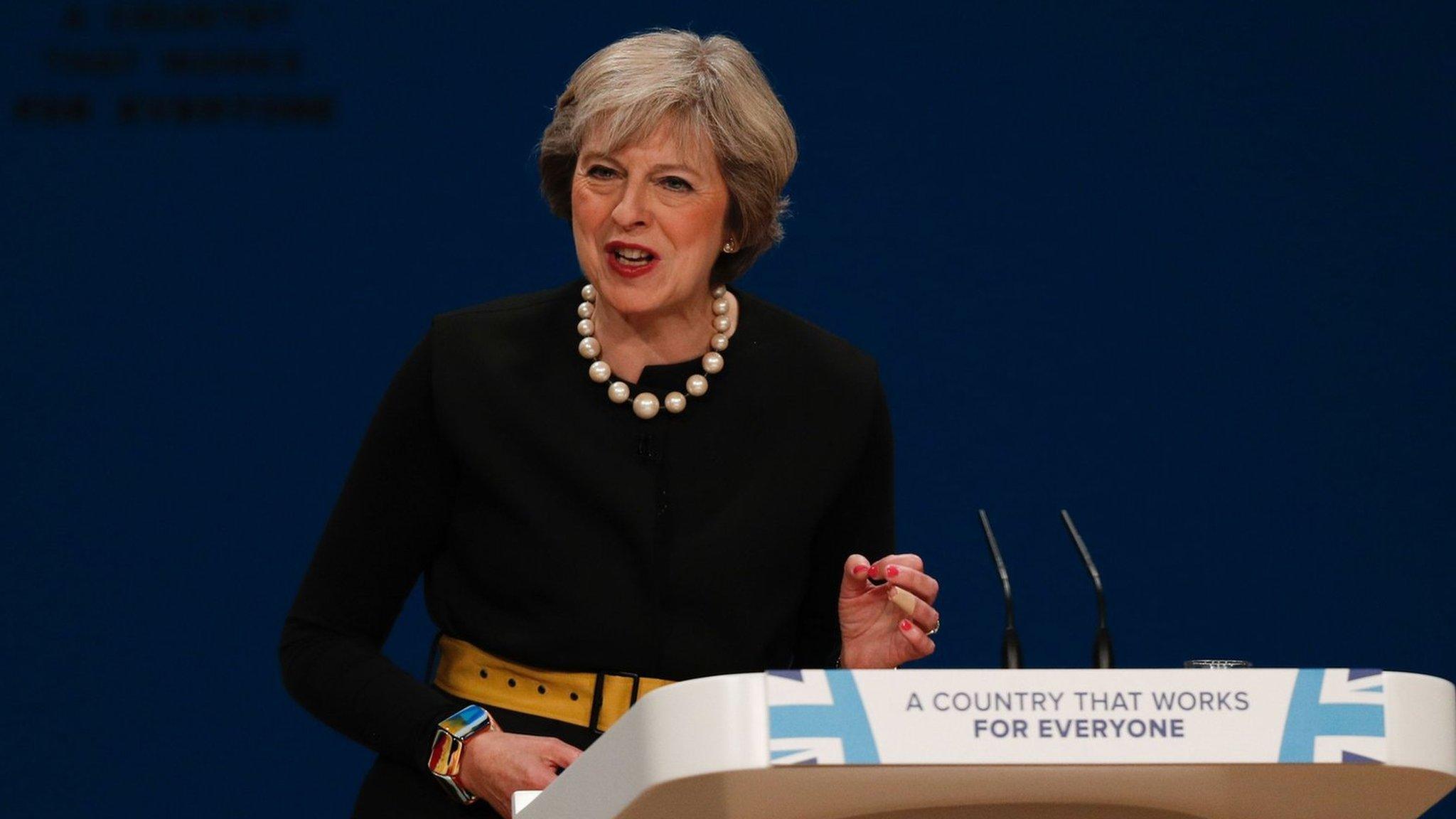UK and Scotland on course for great 'constitutional bust-up'
- Published

The bill will repeal the 1972 European Communities Act
The UK government's plans for a Brexit "Great Repeal Bill" are likely to end in a "constitutional bust-up", a legal expert has predicted.
Prof Jo Shaw, the Salvesen Chair of European Institutions at Edinburgh University Law School, said some form of confrontation between the UK and Scottish governments over the proposal was inevitable.
The bill, announced by Prime Minister Theresa May on Sunday, will repeal the European Communities Act and enshrine all existing EU law into British law.
It would ensure that there would not be any gaps in legislation once the UK left the EU.
But Scotland's Brexit minister Mike Russell has warned the Scottish Parliament might seek to block it if Scotland's interests were not represented in negotiations.
Under the "Sewel convention" the UK Parliament will not normally legislate for devolved matters without the consent of the devolved legislature affected.
Speaking on BBC Radio's Good Morning Scotland programme, Prof Shaw said there were two strands to the issue: legality and legitimacy.
"The legal reality, as I'm quite sure Mike Russell knows, is that the UK Parliament remains sovereign within the British system as it exists.
"So consequently a piece of subsequent legislation from Westminster which overrode or repealed or changed part of the Scottish devolution legislation would of course take priority," she said.
"Legally I have to say I think the UK government holds most of the cards. In legitimacy terms, one could point to the Scottish government having a pretty good hand to play."

The bill will ensure that there are no gaps in legislation once the UK leaves the EU
Prof Shaw said she was sure politicians on both sides of the border were "perfectly aware" the bill would be "very, very confrontational".
"It isn't a particularly consent-based approach, it isn't a particularly collaborative approach," she told the BBC.
"We've seen statements about collaboration that Mrs May made right at the beginning of her premiership have largely gone away now. She's said things like, 'well, Scotland can have its say but ultimately we drive the process here in London.'"
But she said the fact that the UK Parliament could "railroad" legislation through demonstrated the "limits of devolution".
A principle of Westminster parliamentary sovereignty is that no parliament can bind its successors.
"There may have been one parliament that enshrined the legislative consent motion into the Scotland Act 2016.
"The next parliament can then enact this measure that we're talking about today and the effect of that could be to impliedly repeal parts of the devolution settlement."
- Published3 October 2016

- Published2 October 2016

- Published2 October 2016
